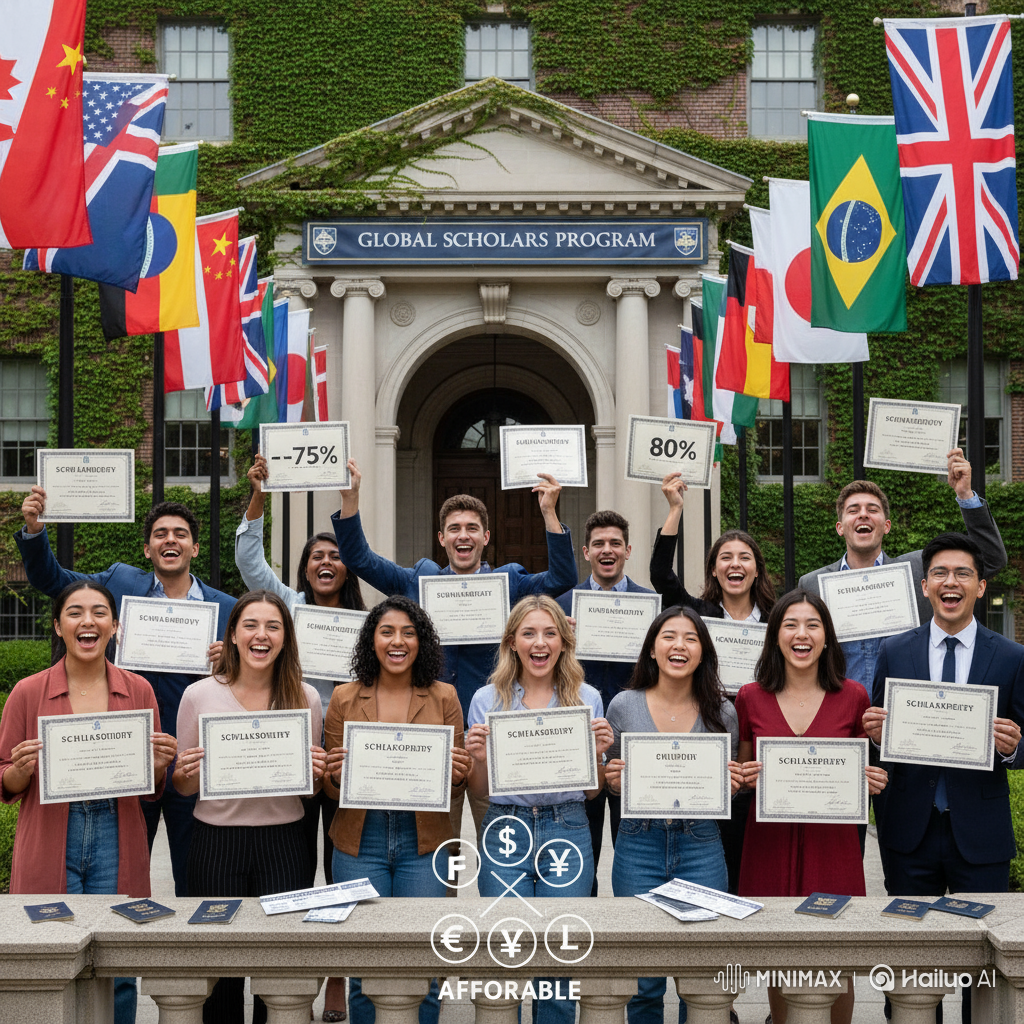Understanding Minority and Diversity Scholarships
Scholarships for minority and underrepresented students aim to promote inclusion, reduce financial barriers, and ensure diverse representation in higher education. These programs recognize that access to education is not only a matter of academic merit but also of opportunity.
In the United States, diversity scholarships are funded by universities, private organizations, foundations, and community groups. They support students from racial, ethnic, gender, or socioeconomic backgrounds that have historically faced barriers to higher education.
Why Diversity Scholarships Are Important
Education shapes economic mobility and leadership representation. Minority scholarships help close achievement gaps, foster equality, and enrich academic environments with diverse perspectives.
Beyond financial aid, these programs also offer mentorship, networking, and community-building opportunities. Students benefit not only from funding but also from long-term professional connections.
Main Categories of Minority Scholarships
- Ethnicity-based scholarships: Target specific racial or cultural groups such as African American, Hispanic, Native American, or Asian/Pacific Islander students.
- Gender-based scholarships: Designed to promote gender balance in fields like STEM or business.
- LGBTQ+ scholarships: Support students advocating for inclusion and equality.
- First-generation or low-income student scholarships: Help those whose families have limited higher education experience.
Each type of scholarship aligns financial support with social equity and community representation.
Leading Scholarships for Minority and Underrepresented Students
| Scholarship | Focus Group | Award Amount | Eligibility Criteria |
|---|---|---|---|
| Hispanic Scholarship Fund (HSF) | Latino students | Up to $5,000 | GPA ≥ 3.0, enrolled or planning to enroll in U.S. college |
| UNCF Scholarships | African American students | Varies by program | U.S. citizens, undergraduate or graduate level |
| APIASF (Asian & Pacific Islander American Scholarship Fund) | API students | Up to $5,000 | Demonstrated financial need |
| American Indian College Fund | Native American students | Up to $8,000 | Enrolled tribal members |
| Point Foundation Scholarship | LGBTQ+ students | Up to $10,000 | Demonstrated leadership and advocacy work |
| AAUW Fellowships | Women (graduate studies) | Up to $50,000 | Academic merit and social impact projects |
These organizations operate nationally and represent the most reputable and established sources of minority funding in the U.S.
How to Apply for Minority Scholarships
Step 1: Identify Your Eligibility
Determine which categories you qualify for — ethnic background, gender, first-generation status, or advocacy work. Many scholarships overlap across these criteria.
Step 2: Gather Documentation
Common requirements include transcripts, essays, proof of heritage (for certain programs), and recommendation letters. Start collecting these early to avoid last-minute stress.
Step 3: Write a Focused Essay
Essays should emphasize resilience, community involvement, and personal growth. Demonstrate how your background shapes your educational goals and contributes to diversity in academia.
Step 4: Apply Broadly and Track Deadlines
Use online platforms like unigo.com, scholarships.com, and bold.org to discover multiple opportunities. Maintain a spreadsheet to track submissions, deadlines, and results.
Common Challenges and How to Overcome Them
- Limited awareness: Many minority-focused scholarships are under-publicized. Regular research and email alerts can uncover hidden opportunities.
- Complex applications: Break the process into smaller tasks — essays, forms, and recommendations — to manage efficiently.
- Imposter syndrome: Remember that diversity scholarships are not charity; they recognize merit within a broader context of representation.
- Competition: Strengthen applications with clear, evidence-based achievements and strong essays.
Tips for Strong Applications
- Highlight leadership or volunteer roles in your community.
- Connect your goals to your identity or background.
- Request recommendations from mentors who can speak to your impact or perseverance.
- Be specific: use concrete examples rather than general statements.
FAQs About Minority Scholarships
Are minority scholarships only for U.S. citizens?
Most are, but some accept permanent residents or DACA recipients. Always verify each program’s terms.
Can I apply for more than one minority scholarship?
Yes. In fact, applying to multiple programs increases your chances of success.
Do minority scholarships affect other financial aid?
They may reduce unmet need but typically complement other aid rather than replace it.
Are there programs for graduate students?
Yes. Many organizations, such as AAUW and UNCF, fund graduate and doctoral-level education.
Conclusion
Scholarships for minority and underrepresented students are more than financial assistance—they are pathways toward inclusion, representation, and systemic change. By actively pursuing these opportunities, students not only fund their education but also contribute to creating a more equitable academic landscape in the United States.

